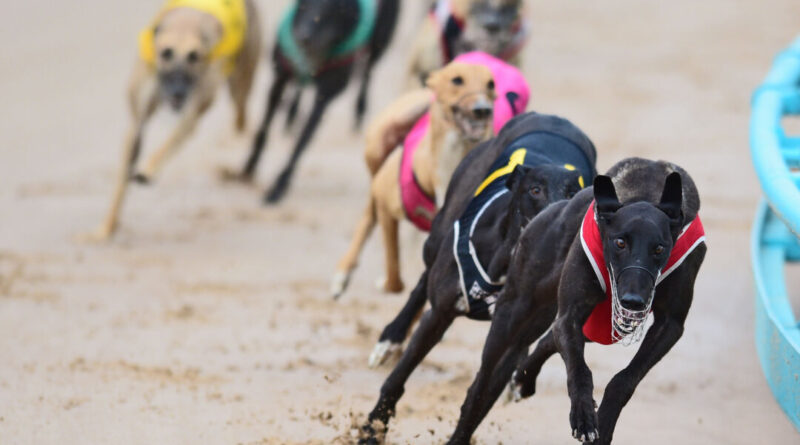Greyhound Racing Victoria stands by its record as animal welfare proposal is approved
Sport in Victoria is set to undergo further regulation following the passing of a motion to expand key animal welfare integrity data.
A motion presented to the Victorian Legislative Council by the Animal Justice Party (AJP) has caused a divide within the greyhound racing community and animal activists. The motion, passed on Oct. 16 with 23 “yes” votes to 14 “noes,” aims to enhance protocols on record-keeping, specifically focusing on injuries sustained at the track and during training.
Georgie Purcell, the AJP member of the Legislative Council for Northern Victoria, passionately supported the motion citing a strong demand for greater transparency in greyhound racing from lawmakers and the public.
However, Stuart Laing, CEO of Greyhound Racing Victoria (GRV), believes that his industry is being unfairly penalized for its efforts to address animal welfare concerns.
In a statement released on Oct. 18, Laing highlighted a decrease of over 8 percent in total injuries during Victorian greyhound races over the past four years. Moreover, he pointed out that more than 92 percent of racing injuries last season were classified as non-serious by the on-track veterinarian, with serious injuries accounting for only 2.46 injuries per 1,000 starters (or 0.2 percent), a figure that has declined over the years.
Laing also refuted claims made by the AJP and other anti-greyhound racing activist groups that GRV has been dishonest about its figures. He stated that fatality rates in Victorian races have decreased by more than 47 percent compared to five years ago.
“GRV remains fully committed to the priorities of greyhound welfare and industry integrity,” Laing affirmed. “The significant improvements in welfare and integrity outcomes achieved by the Victorian greyhound racing industry over the past eight years are undeniable.”
Animal Justice MP’s Advocacy
Purcell reassured members of the greyhound racing industry that these changes should not be feared or seen as an attempt to dismantle the sport entirely.
However, if it were up to her, Purcell, who has also been involved in campaigns against live sheep exports, duck hunting bans, and stricter pig welfare regulations, expressed her desire to ban greyhound racing.
In her address to the Victorian Parliament, she emphasized the importance of supporting measures that would preserve the industry’s social license, which she believes is rapidly diminishing.
“If members truly care about and support this industry, they should welcome the provision of additional data by GRV,” Purcell asserted. “The true intent of the motion seems to be misunderstood by many opposition members. It does not seek to end the industry, although I have been vocal in stating that would be my choice if given the chance.”
Top Trainer Defends the Industry
Renowned Greyhound Clubs Australia Trainer of the Year, David Geall, expressed his support for stringent animal welfare regulations and expressed frustration at the industry being singled out by activists.
Geall, who is also a two-time Melbourne Cup winner and a greyhound breeder, praised the industry’s efforts in ensuring the well-being of greyhounds. He stressed that every greyhound trainer and breeder undergo annual welfare inspections to uphold GRV standards.
Disputing claims made by anti-greyhound racing groups, Geall shared heartwarming stories of retired greyhounds finding loving homes, emphasizing the industry’s commitment to the welfare of its animals.
“It is immensely satisfying to witness one of our retired greyhounds being adopted by a loving individual or family,” Geall remarked. “This positive aspect of our industry brings joy to many trainers, akin to winning a prestigious race in Melbourne.”
Combatting Negative Publicity
Beyond the greyhound racing community, the sport has faced intense scrutiny from the media since the live baiting scandal of 2016.
Purcell expressed her dismay at the report’s findings and highlighted the distressing number of greyhound deaths and injuries documented in both NSW and Victorian racing tracks this year.
Advocating for a ban on greyhound racing, Purcell emphasized the significant welfare and cruelty concerns inherent in the industry. She called for urgent legislation to prohibit greyhound racing and provide support for retired greyhounds and industry workers to transition out of the sport.
The publication of the Brittan report made national headlines, negatively impacting the greyhound racing industry. Nevertheless, prominent trainers in NSW and Victoria, including Peter Lagogiane, Anthony Azzopardi, and Mark Delbridge, defended their industries against accusations of mistreatment.
Lagogiane reiterated the industry’s commitment to upholding rules and intervening in cases of misconduct. Similarly, Geall expressed confidence in GRV’s integrity and adherence to strict regulations designed to safeguard greyhound welfare.
“It is disheartening to see negative headlines about our industry, especially considering the love and care most trainers and breeders provide to their greyhounds,” Geall said. “GRV has implemented stringent rules, and we are dedicated to ensuring compliance with them.”
The Epoch Times reached out to Purcell’s office for further comment.





